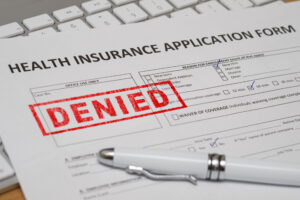Tax Relief Courtesy of Hurricane Harvey

While Hurricane Harvey continues to devastate the Gulf Coast, Texans can expect to receive a little extra relief this upcoming tax year from Uncle Sam. Taxpayers in the federally declared disaster area have the option of claiming disaster-related casualty losses for either the year that the event occurred or the year prior. This means that those whose homes were affected by wind or flood damage can deduct the damages from either this year or the last year’s tax returns. In many cases, amending last year’s returns results in an immediate tax refund which can be then used to live on or begin repairs. However, the option of amending last year’s return may not be for everyone since the IRS does have two rules that must be followed for casualty claims. The first is that the amount of damage claimed must first be deducted by $100. Then the total casualty losses must be reduced by 10% of your adjusted gross income. If you qualify for writing off a loss the process is fairly simple. First, you will need the proper forms. These are the long Form 1040, Form 4684 to determine and report your casualty loss and Schedule A to itemize your loss deduction. If you are planning on amending your 2016 return you will need to use Form 1040X instead of the long Form 1040. You will then need to determine how the damages incurred have affected your property’s fair market value. This is done through determining how much your property is worth immediately prior to the disaster and comparing it to what it is worth immediately after the disaster. The latter part of this will need to be through a professional appraiser. The difference between these two amounts is your loss from casualty. You can then utilize Form 4684 to determine the deductible amount of your casualty loss.
If you have insurance on your property you must first file a claim to use the damage as a casualty loss. Any money that you receive from the insurance company must then be deducted from the casualty loss amount. All insurance payments must be used to repair, or replace your property or any excess could be counted as a taxable gain to you.
Throughout all of this remember to keep documentation of everything! While the IRS may give disaster victims some leeway, they do require that casualty losses be substantiated and supported. This will also be of great value to you if you ever get audited in the future.
Consult with your tax advisor to determine which option would be best for you and your family.
For more on how to claim your casualty losses (click here).
Entrepreneur Think Deductions, Deductions, Deductions!
Are you an entrepreneur looking for a tax break? Entrepreneurs have a lot on their plate, including living with the financial risk of their entrepreneurial efforts. That’s why it’s so important for any entrepreneur to be aware of any and all deductions come tax time. There are dozens of deductions to be had, but the…
Late Obamacare Forms Could Be Big Problem for Taxpayers
While you may or may not like Obamacare, the fact is the president’s health care plan has caused problems at tax time since its inception. Apparently, this year is no different. According to a recent report, because of a delay in new tax forms for the health law this year, many taxpayers are facing more…
Don’t Forget About These Important Tax Write-Offs
The saying goes that it’s the small victories that count. That saying can be especially true during tax time when for many taxpayers any chance to save even a few dollars more is considered a positive. Plus, when you add up enough of the small victories they can equal a significant reward. With that in…
Have You Heard About These New Income Tax Changes?
February is almost over. Can you believe it? That means the annual income tax return deadline is fast approaching. If you still haven’t done your taxes then there are some important changes you should know about. Hopefully, if you’ve already filed, then you were aware of these changes beforehand. If not, and you think they…




